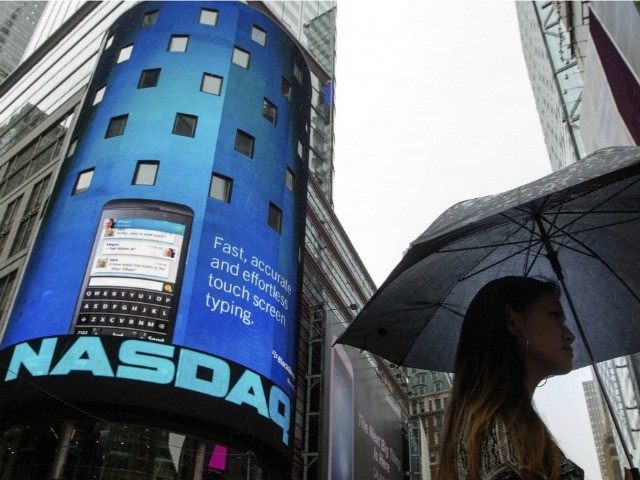With less than a week until Valentine’s Day, investors’ love affair with Silicon Valley continues to come undone as the tech-stock heavy NASDAQ Index plunged on the Feb. 8 opening down 3.5 percent.
Breitbart News had warned over the weekend that LinkedIn’s 45 percent one-day stock crash on what has come to be known on Wall Street as tech “Black Friday” might have been an existential warning of a coming “Job Crisis in Silicon Valley.”
LinkedIn, along with Salesforce and Workday, have been Silicon Valley investment theme darlings as the three top companies associated with “Software as a Service” (SaaS). The combined market valuations of the 38 public companies in the Bessemer Venture Partners’ cloud-computing index hit a mind-boggling $265 billion total-market-capitalization in December, despite just $13.8 billion of revenue.
Described as “[t]he world’s hottest regional economy,” Silicon Valley high tech has been driving virtually all of the state of California’s economic recovery over the six years since the Great Recession. Of the state’s 58 counties, only the four Bay Area counties have fully recovered to 2007 levels for jobs, unemployment rate, economic output and home prices, according to a report from the National Association of Counties.
During the decade-long tech boom, Silicon Valley employment grew at double-digit rates, and engineers were able to command 35-to-38 percent wage premiums, plus lucrative stock options. As a result of what economists call a “wealth effect,” the median home price in San Jose hit $980,000 in August, versus a nationwide average of $229,400.
There have been antidotal rumors floating around Silicon Valley since August of a SaaS demand slowdown, but it was not confirmed until LinkedIn’s Feb. 4 management call stated that the company’s growth was being cut in half.
Over the next two trading days, LinkedIn, Salesforce and Workday’s combined stock values plunged by $22 billion. In the first 9 weeks of 2016, the 38 company BVP SaaS index is now down a mind-boggling $125 billion.
Breitbart News warned just before LinkedIn’s earnings disaster that the bipartisan Legislative Analysts’ Office had reported that California’s 2015-16 personal income tax collections had fallen from a huge surplus of about $1.3 billion in December to a $147 million deficit in January–an indication that Silicon Valley was already in a slowdown.
Worries have not only hit computer and telecommunications’ stocks: Tesla Motors (NASDAQ:TSLA) took an 8.9 percent downward slide. The stock is down by 30 percent for 2016 and about 45 percent since last summer.
A late rally in the afternoon cut the NASDAQ loss to about 1.8 percent. But investment banks tumbled hard over fears that the deal flow from Silicon Valley will evaporate. Morgan Stanley (MS.N) slid 6.9 percent and rival Goldman Sachs (GS.N) fell 4.6 percent, as both set their lowest closing price in the last three years.

COMMENTS
Please let us know if you're having issues with commenting.